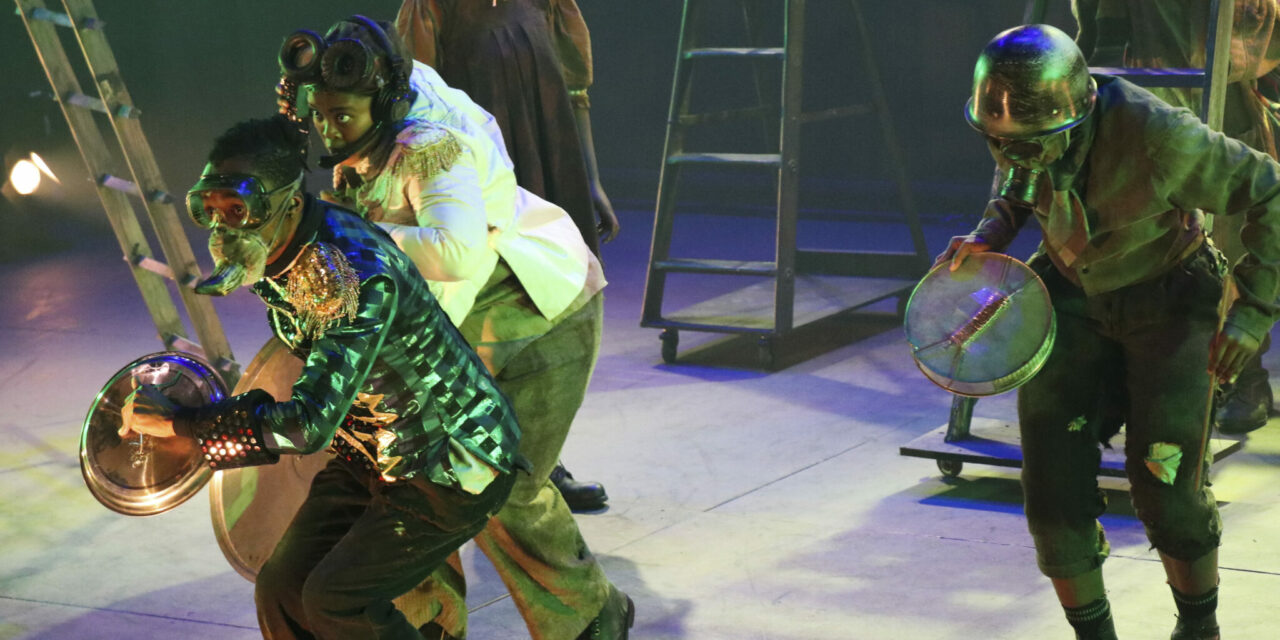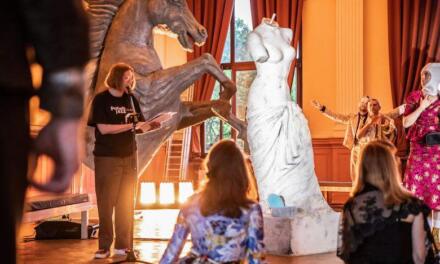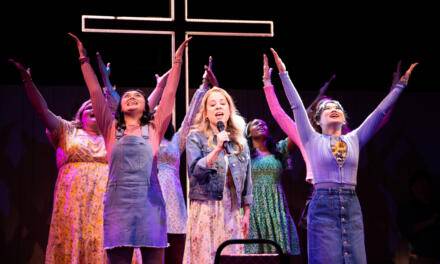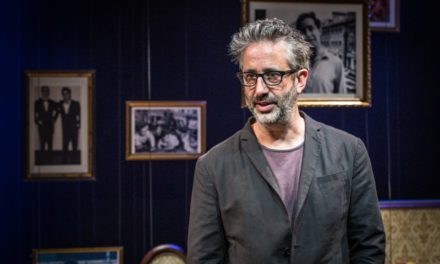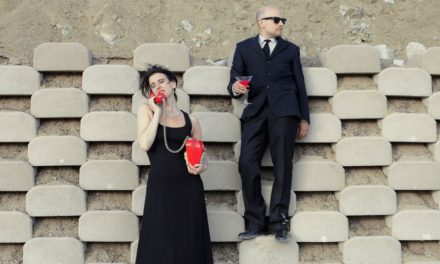Rhinoceros, the official production commemorating the Market Theatre Lab’s 30th-anniversary celebrations, and performed by the supremely talented Kwasha! Theatre Company is a piece worthy of marking this epic milestone of this celebrated training institution.
Directed by the inimitable Billy Langa and Mahlatsi Mokgonyana of the TheatreDuo fame (both of whom are coincidentally graduates of the Lab), their directorial reimagination of this classic certainly packs some punches; not only at how it puts focus on the absurdity of the human condition, but also to some degree at humanity’s fraught if not, precarious relationship with one another, and with nature.
Written in 1959 by celebrated French-Romanian playwright Eugene Ionesco, this period-play-of-sorts seems to be a rejection of long-held ideas and ideals of its time; It further suggests that conformity, which one could argue has led to much human misunderstanding and suffering, is not more important than seeking to understand the so-called ‘other’. The play, through the absurd situations it places its eclectic and unusual group of characters, finds further resonance with this time period in how it rejects notions of ‘us’ and ‘them’.
The play pokes fun and ridicules well-established ideas of reason, logic, morality, and philosophy. One could say that it is as relevant now, and even more than when it was when written more than 50 years ago. In our era of half-truths, fake news, and hired pens masquerading as public relations agents who manufacture and package ‘truths’ then sell it to the highest bidder, Rhinoceros comes across as a timeless piece.
Under the careful direction of the TheatreDuo, they do not commit the fatal flaw of taking away too much from the original, but rather, they bring the play into the modern era, and have it address the things which for so long have been thorny and problematic. In one scene, the idea of a cat having four paws is lampooned- almost deliberately – as an example of how what things seem to be, may or may not be what they are.
Rhinoceros manages to show separation and create animosity between neighbors and friends very well, through the discovery of the rhinoceros roaming around town. The sole preoccupation of the rest of the townsfolk becomes that of trying to identify whether the rhinoceros have one or two horns i.e. are Asiatic or African when more serious issues of survival need to be tackled. Contemporary challenges like race (referred to in the play as ‘the color bar’), show that Eugene Ionesco was indeed a playwright well ahead of his time.
Rhinoceros ran at the Market Theatre until 20 October, in Durban at Courtyard Theatre from the 24-26th of October and in Cape Town at the Magnet Theatre on the 8-9th of November 2019.
This article was originally posted at http://theafricantheatremagazine.comand has been reposted with permission. To read the original article, click here.
This post was written by the author in their personal capacity.The opinions expressed in this article are the author’s own and do not reflect the view of The Theatre Times, their staff or collaborators.
This post was written by Tonderai Chiyindiko.
The views expressed here belong to the author and do not necessarily reflect our views and opinions.

